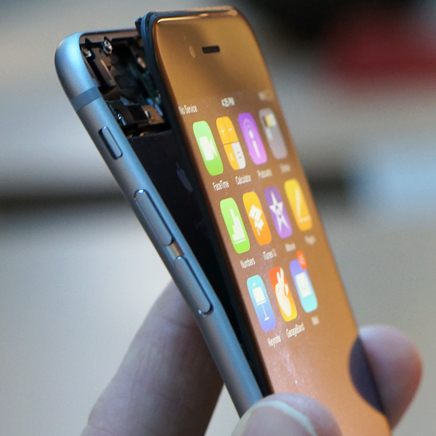After several years, a topic that resonated strongly in the Apple community (and not only) four years ago is coming to the fore. This is the 'Bendgate' affair, and if you've been following Apple for more than two years, you most likely know what it's all about. Now the documents have seen the light of day, in which it is clearly stated that Apple knew about the problems with the rigidity of the frames of the iPhones of the time even before the iPhone 6 and 6 Plus went on sale.
It could be interest you

According to documents released by one of the US courts that dealt with this case, Apple already knew before sales of the iPhone 6 and 6 Plus that their bodies (or aluminum frames) were prone to bending if they were subjected to more force. This fact became evident during the internal resistance tests that take place as part of the development. Despite this fact, the company in the initial stages rejected all accusations that the structural strength of the iPhones of the time was weakened in some serious way. There was never a full acknowledgment of the wrongdoing, Apple only allowed a "discounted" exchange of phones to all those who had a similar problem.
It could be interest you

Due to the increasing number of cases, which varied in intensity - from non-functional displays to physical bending of the frame, Apple had to come out with the truth, and in the end it turned out that the iPhones from 2014 are more prone to bending when higher pressure is applied.

The published documents are part of one of the class actions that took place against Apple based on this case. It was in these lawsuits that Apple had to submit relevant internal documentation from which the knowledge of the weakness of the integrity of the frame came to light. It is literally written in the development documentation that the durability of the new iPhones is noticeably worse than in the case of previous models. The documents also revealed what exactly was behind the poorer bending resistance – in the case of these particular iPhones, Apple omitted reinforcement elements in the area of the motherboard and chips. This, combined with the use of less rigid aluminum and its very thin parts in some parts of the phone, led to a greater susceptibility to deformation. The piquancy of the whole news is that the class action lawsuit related to the Bendgate affair is still ongoing. It will be so interesting to see how it develops based on this information released.
Source: Cultofmac